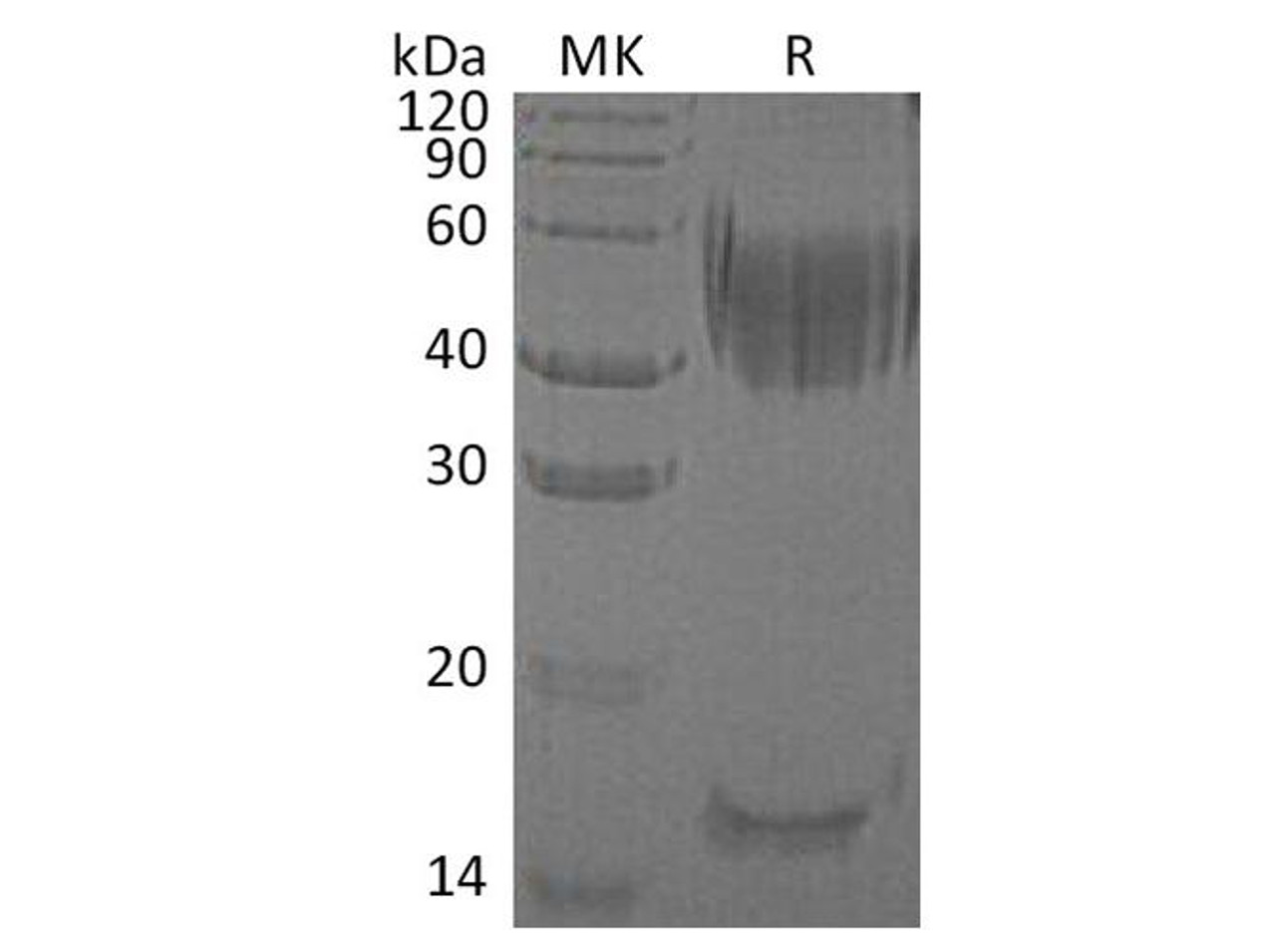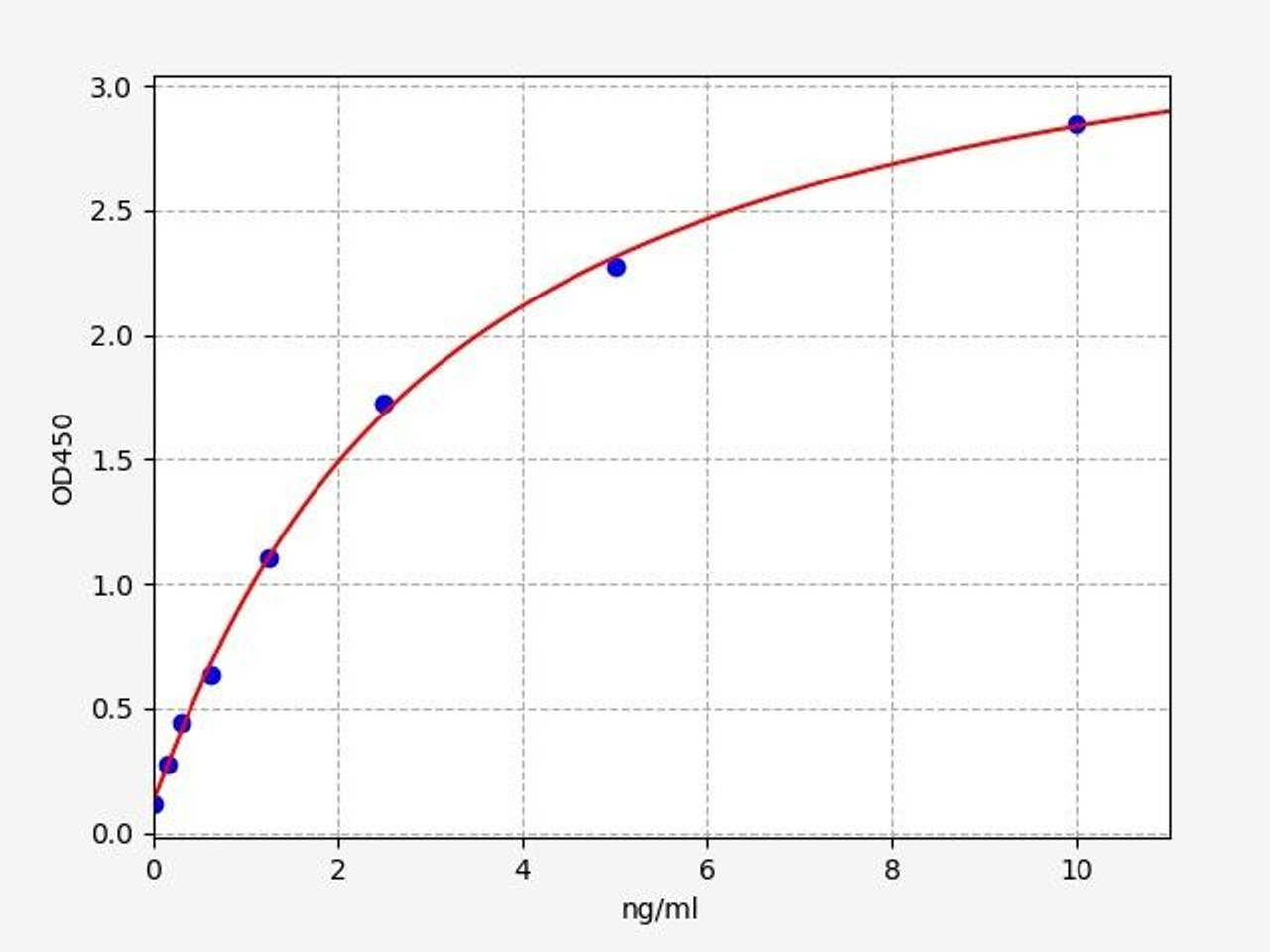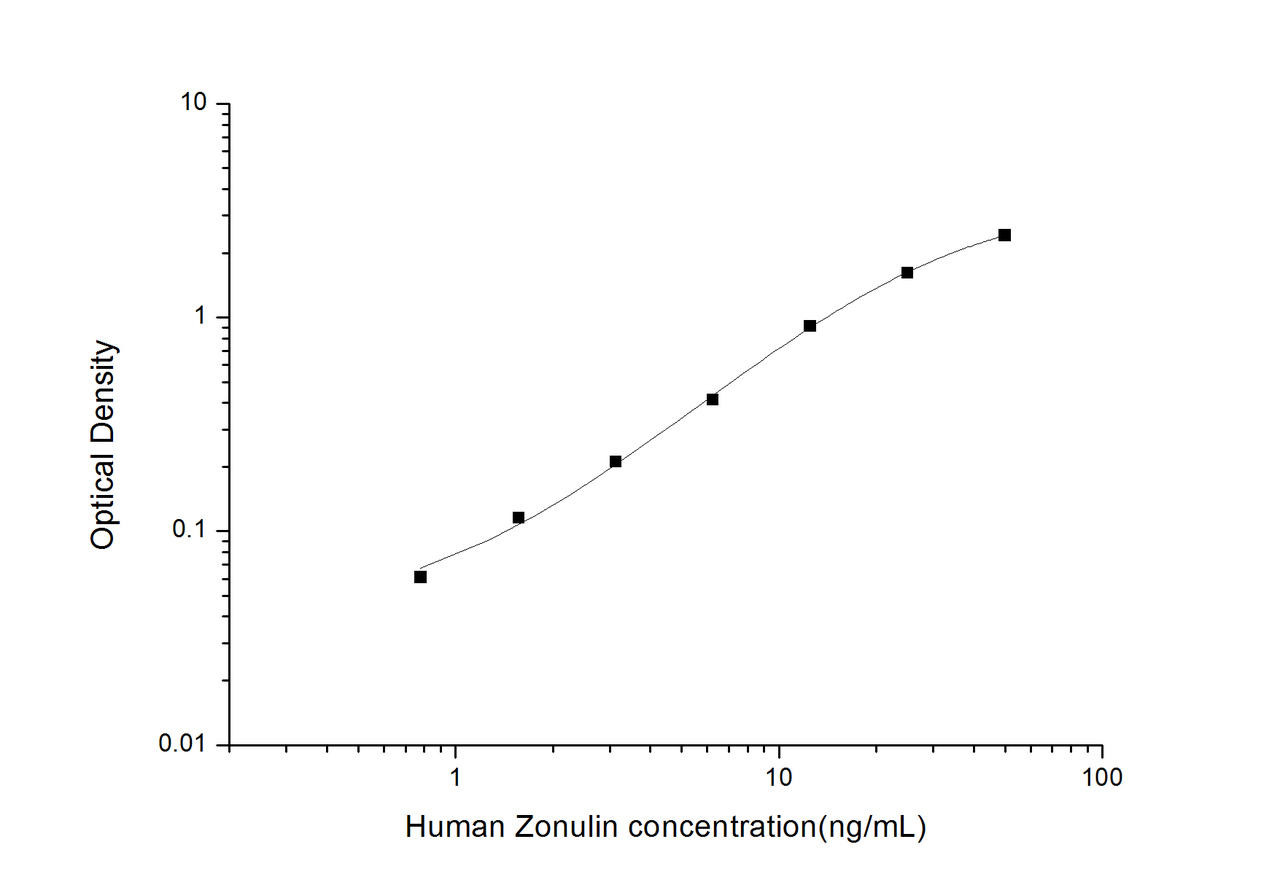The Role of Zonulin In Intestinal Permeability
This article provides an overview of the protein Zonulin (function, structure, location). It describes tight junction proteins, leaky gut and Zonulin-related diseases. This includes celiac disease, Crohn's disease, inflammatory bowel disease, diabetes and Alzheimer's disease.
Key Takeaways:
- Zonulin is a protein regulating intestinal permeability, or "leaky gut."
- It modulates tight junctions in the intestines, affecting substance passage into the bloodstream.
- Dysregulated zonulin levels are linked to autoimmune disorders, celiac disease, diabetes, and Alzheimer's.
- Zonulin is involved in diseases like Crohn's and cancer, and its inhibitors are being researched.
- Elevated zonulin levels can increase bacterial adhesion and intestinal permeability.
What is Zonulin and where is it found?
Zonulin is a protein that plays a crucial role in the regulation of intestinal permeability, also known as the "leaky gut" phenomenon. It is predominantly found and produced in the cells of the small intestine. Zonulin acts as a molecular gatekeeper, modulating the tight junctions between epithelial cells that line the intestinal wall. These tight junctions normally function as a selective barrier, controlling the passage of substances from the intestines into the bloodstream. However, when zonulin levels become dysregulated, it can lead to increased permeability of the intestinal barrier, allowing unwanted substances, such as toxins, bacteria, and undigested food particles, to cross into the bloodstream. This disruption of the intestinal barrier has been implicated in various health conditions, including autoimmune disorders, inflammatory bowel disease, and metabolic disorders.
Apart from the small intestine, Zonulin is also secreted by the liver, kidney, heart, brain and immune cells. Zonulin is naturally present in many foods. Foods that are high in Zonulin include grains such as wheat, dairy products, legumes, nuts, and seeds.
What are tight junctions?
Tight junctions are specialized structures found between adjacent cells in epithelial and endothelial tissues. They form a barrier that seals the space between cells, limiting the passage of molecules and ions between them. Tight junctions help regulate the movement of substances across epithelial barriers, ensuring proper tissue function and protection.
Tight junction proteins are the proteins that create intercellular connections in these junctions and prevent leakage between cells. They play a crucial role in maintaining the integrity and selective permeability of various tissues, including the intestinal lining, blood-brain barrier, and kidney tubules. Some key tight junction proteins include : Junctional Adhesion Molecules (JAM), Zonula Occludens (ZO), Claudins and Occludins
Fig. 1 Different Types of Tight Junction Proteins
What is a leaky gut?
A leaky gut is a condition in which the intestines are more permeable than they should be. This allows toxins, bacteria, and other substances to leak into the bloodstream, which can lead to inflammation and a variety of other health problems. Leaky gut syndrome is thought to be a major contributor to autoimmune diseases, such as celiac disease, Crohn's disease, and ulcerative colitis. Some of the main causes of developing a leaky gut include, chronic inflmmatory stares, diseases like HIV/AIDS, chemotherapy and radiation therapy, chornic use of NSAIDS or alcohol.
Zonulin is thought to play a role in leaky gut syndrome, as high levels of zonulin have been associated with increased intestinal permeability.
Fig 2. Healthy Gut Homeostasis vs Leaky Gut
What is the function of Zonulin?
The primary function of zonulin is to regulate the permeability of the intestinal barrier. Zonulin acts as a signaling protein that modulates the opening and closing of tight junctions between epithelial cells in the intestinal lining. Tight junctions normally form a selective barrier, controlling the passage of substances from the intestines into the bloodstream. Zonulin, when appropriately regulated, helps maintain the integrity and tightness of these junctions, ensuring proper control of molecular and cellular traffic across the intestinal epithelium. It is also involved in the repair of damaged cells.
Fig 3. The effect of Zonulin on tight junction proteins and intestinal permeability.
However, when Zonulin levels elevated in response to certain stimuli they become dysregulated. Two common triggers of zonulin are bacterial infection, and gluten. When this happens, zonulin signals the body to increase the permeability of the gut lining, allowing larger molecules to pass through. This can trigger immune responses, inflammation, and potentially contribute to the development of various health conditions, including autoimmune disorders, inflammatory bowel disease, and metabolic disorders.
While the precise mechanisms of zonulin's regulation are still under investigation, it is believed that zonulin interacts with specific receptors on the surface of epithelial cells, initiating intracellular signaling pathways that affect the tight junctions' integrity and permeability.
What is the structure of Zonulin?
Zonulin is composed of two chains, an A chain and a B chain. The A chain is responsible for binding to the cell surface receptor, while the B chain is responsible for signaling the body to increase gut permeability. Zonulin is encoded by the ZONULIN gene. Zonulin is made up of two subunits ZON1 and ZON2.
What is Zonulin's role in disease?
Elevated zonulin levels are associated with Leaky Gut SYndrome, and have been linked to a number of conditions such as celiac disease, type 1 diabetes, and inflammatory bowel disease.
Celiac disease is an autoimmune disorder that is triggered by gluten ingestion. When people with celiac disease eat gluten, their immune system attacks the lining of the small intestine, causing inflammation and damage. This can lead to a number of problems, including malabsorption of nutrients, diarrhea, and weight loss. People who have Celiac disease have higher zonulin levels and are more likely to have a leaky gut.
Type 1 diabetes is another autoimmune disorder that is caused by the destruction of the insulin-producing cells in the pancreas. This leads to a build-up of glucose in the blood, which can damage organs and cause a number of problems.
Inflammatory bowel disease is a condition that causes inflammation of the digestive tract. It can lead to a number of problems, including abdominal pain, diarrhea, and weight loss. Crohn's disease is an inflammatory bowel disease that is characterized by inflammation of the gastrointestinal tract. Crohn's disease can cause a number of problems, including abdominal pain, diarrhea, and weight loss. Zonulin has been implicated in the development of Crohn's disease. One study found that people with Crohn's disease had higher zonulin levels than healthy controls thus speculating that zonulin may play a role in the development of Crohn's disease.
Zonulin has also been implicated in the development of other conditions, such as autism, schizophrenia, and Alzheimer's disease. However, more research is needed to confirm these links. Zonulin may also play a role in cancer metastasis. One study found that zonulin levels were elevated in patients with pancreatic cancer. The study authors believe that zonulin may help cancer cells to spread by increasing the permeability of the gut lining. Another study found that zonulin levels were elevated in patients with breast cancer. The study authors believe that zonulin may help cancer cells to spread by increasing the permeability of the gut lining.
Zonulin and bacterial adhesion
Elevated zonulin levels have been linked to increased bacterial adhesion. Bacterial adhesion is the process by which bacteria attach to cells in the body. This can lead to a number of problems, including infection and inflammation. One study found that people with Celiac disease had higher levels of zonulin and were more likely to have increased bacterial adhesion. The study authors believe that zonulin may help bacteria to attach to cells in the gut, which can lead to inflammation and damage.
What are the symptoms of conditions associated with elevated Zonulin levels?
The symptoms of conditions associated with elevated zonulin levels vary depending on the condition. Celiac disease may cause abdominal pain, bloating, gas, diarrhea, weight loss, and fatigue. Type 1 diabetes may cause increased thirst, increased urination, weight loss, and fatigue. Inflammatory bowel disease may cause abdominal pain, diarrhea, weight loss, and fatigue. Autism, schizophrenia, and Alzheimer's disease are associated with a number of different symptoms that vary depending on the condition.
How are Zonulin levels measured?
Zonulin levels can be measured through a blood test. However, this is not a common test and is not routinely done. Zonulin levels may also be measured through a stool sample however this test is more commonly used to diagnose inflammatory bowel disease. The methods in which zonulin is detected is by a zonulin ELISA . Zonulin ELISA is a blood test in which zonulin antibodies are measured. This test is used to diagnose celiac disease, type 1 diabetes, and inflammatory bowel disease.
Fig 4. Zonulin ELISA Standard Curve
Zonulin Related Products
Related Kits

| Haptoglobin/Zonulin Recombinant Protein | |
|---|---|
| Product Type | Recombinant Protein |
| Host Species | Human cells |
| Reactivity | Human |

| Human TJP1(Tight junction protein ZO-1) ELISA | |
|---|---|
| ELISA Type | Sandwich, Double Antibody |
| Sensitivity | 0.188ng/ml |
| Range | 0.313-20ng/ml |
How are Zonulin-related disorders treated?
The treatments for conditions associated with elevated zonulin levels vary depending on the condition. However, following a gluten-free diet can help to reduce symptoms in people with celiac disease. Furthermore, avoiding gluten-containing foods can also help to reduce zonulin levels. Type 1 diabetes is treated with insulin replacement therapy. This involves taking insulin injections or using an insulin pump to control blood sugar levels. Inflammatory bowel disease is treated with a number of different medications, including anti-inflammatory drugs, immunosuppressants, biologics or surgery. Crohn's disease is treated with a number of different medications, including anti-inflammatory drugs, immunosuppressants, and biologics. There is no cure for autism, schizophrenia, or Alzheimer's disease, but there are treatments that can help to manage the symptoms.
Zonulin Inhibitors
Zonulin inhibitors are substances or compounds that can help regulate or block the activity of zonulin. The goal of using zonulin inhibitors is to prevent or reduce the increased permeability of the intestinal barrier associated with conditions such as leaky gut syndrome. Currently, research on zonulin inhibitors is ongoing, and various approaches are being explored. Some potential zonulin inhibitors include:
1. Larazotide acetate: Also known as AT-1001, larazotide acetate is a synthetic peptide that has shown promise in reducing zonulin-mediated intestinal permeability. It works by blocking the zonulin receptor and inhibiting the opening of tight junctions, thereby helping to maintain the integrity of the intestinal barrier.
2. Polyphenols: Certain polyphenolic compounds found in plants, such as resveratrol, curcumin, and quercetin, have been investigated for their potential to inhibit zonulin signaling. These natural compounds may help regulate zonulin levels and maintain tight junction integrity.
3. Probiotics: While not direct zonulin inhibitors, certain strains of probiotic bacteria, such as Lactobacillus and Bifidobacterium species, have been shown to have a positive impact on intestinal barrier function and leaky gut. They can help restore gut microbiota balance, reduce inflammation, and reinforce tight junction integrity, indirectly contributing to the regulation of zonulin.
4. Gluten-free diet: Zonulin has been identified as a key player in the response to gluten in individuals with celiac disease. In these individuals, gluten triggers zonulin release, leading to increased intestinal permeability. Adopting a strict gluten-free diet is the primary treatment for celiac disease and can help prevent the activation of zonulin.
Written by Rithika Suresh
Rithika Suresh completed her undergraduate degree in Biotechnology in Anna University before completing her masters in Biotechnology at University College Dublin.
Recent Posts
-
IgG1 Plasma Cells: The Emerging Biomarker for Predicting Cancer Immunotherapy Success
In the relentless fight against cancer, immunotherapy has emerged as a beacon of hope, harnessing t …24th Feb 2026 -
The Rise of Cancer Neuroscience: How Neural Circuits Drive Tumor Progression
For decades, we viewed cancer as a rogue army of cells, a biological glitch driven solely by geneti …23rd Feb 2026 -
CRISPR-Powered Light Sensors: A New Frontier in Ultra-Sensitive Cancer Detection
Cancer detection often relies on advanced imaging or invasive procedures, frequently catching the d …20th Feb 2026





